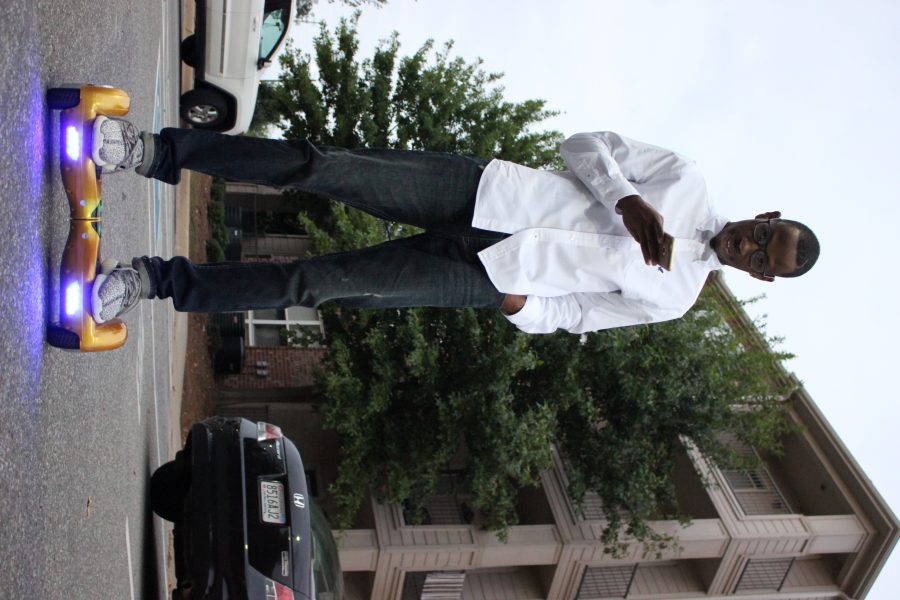“They’re going to take over the world eventually,” said Phillip Drake, a junior majoring in business administration. “Scooters are going to be like Playstation and Xbox-everyone’s going to have one eventually. It’s going to be that big.”
By most people, they’re called hover boards.
A board fits one person and is controlled by touch sensitive pads underneath the feet of the rider. To accelerate, the user leans forward; to brake, lean back. Turning involves shifting their weight to one side of the board or the other. Drake said that the devices are very simple to pick up.
“I’ve taught plenty of people, and everyone I’ve taught has learned in like, 10 minutes or less,” he said.
It takes about two hours to charge up one, and once powered, it can ride for seven miles before running out of juice. The top speed of the hover board is 12 miles per hour.
Drake, 27, sells the vehicles between classes at the University of Alabama, in addition to running several other ventures. He originally wanted one when he saw artist Chris Brown had one. But he also recognized a good business opportunity.
“I went over to China and found out where they were making them,” he said. “Nowhere in the United States is making them.”
The entrepreneur knew suppliers in Beijing because of other gadgets he sold in the past. He traveled to “The Valley,” an industrial area in China’s capital, and realized that he could bring hover boards to the states at an affordable price.
The reason there are so many different names for these vehicles is because there is not a U.S. patent on them. Drake said that anyone can sell them and call them anything they want, and many rappers or celebrities have put their name and brand on a version of the scooter.
Different companies also produce competing versions of the same idea that vary in price, design and top speed. Drake is not looking forward to the day when the new technology becomes restricted.
“Once they put a patent on it, the bigger stores will be able to pick it up, like Wal-Mart, Target,” he said. “That’s going to put all the little men out, like me, and everybody else selling it.”
The student has sold the hover boards in Tuscaloosa, Birmingham and North Carolina. Different versions are also available through certain online retailers.
Shaquera Wade, a freshman majoring in mechanical engineering, got hers off Amazon. She said the device made getting to class much easier.
“I could do anything on it,” she said. “It got me down to the elevator faster than if I was walking to the elevator.”
Drake believes that the products have an appeal among students because they’re practical in addition to being stylish.
“I told [students], don’t look at it as a toy,” he said. “It’s kind of an investment. You go to class every day. You can wake up late and still make it to class on time.”









